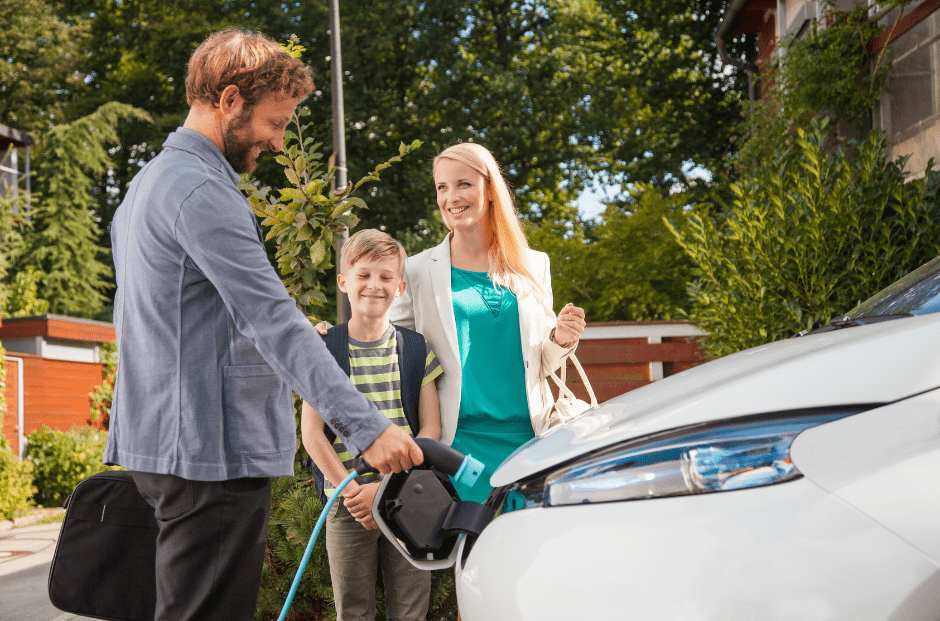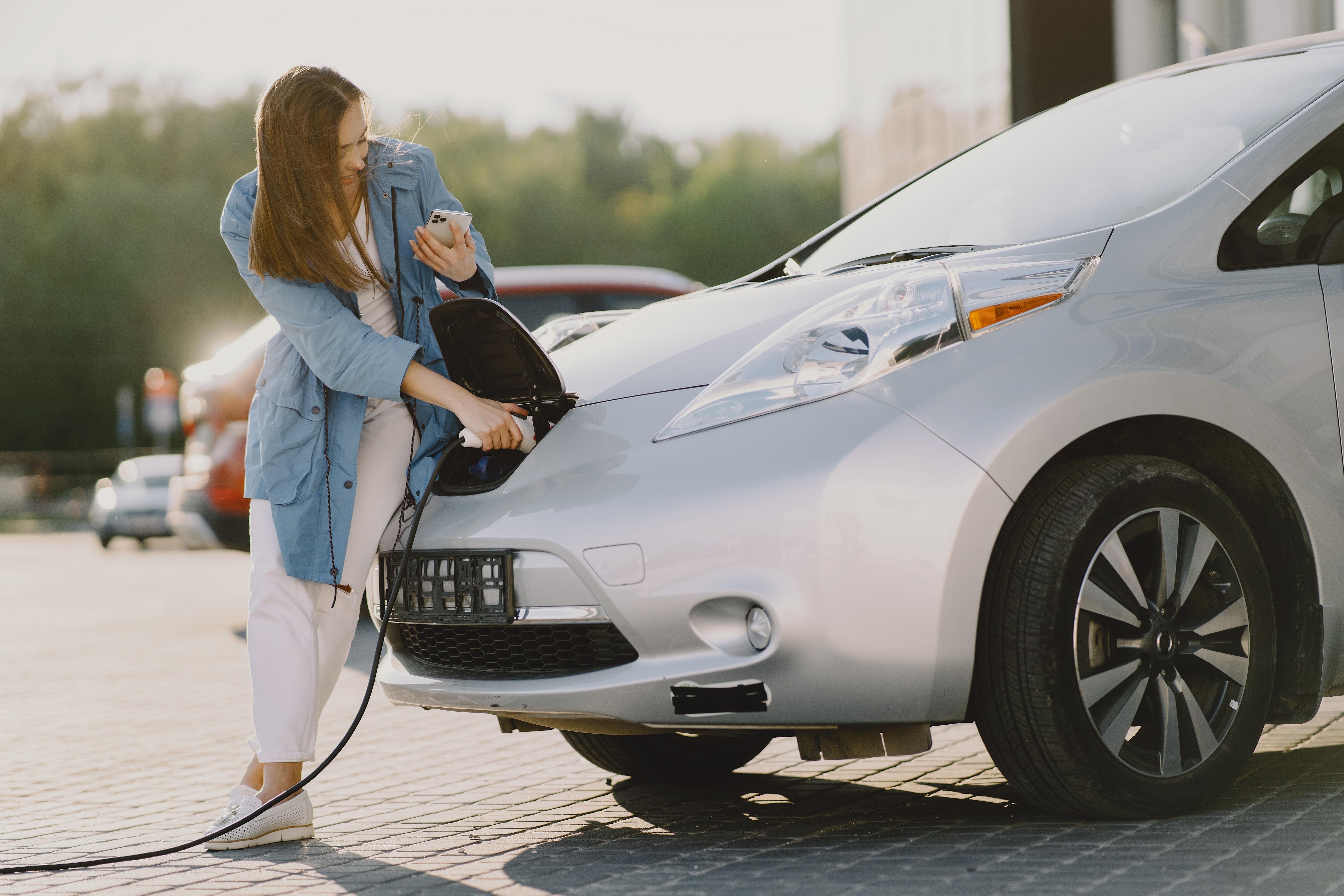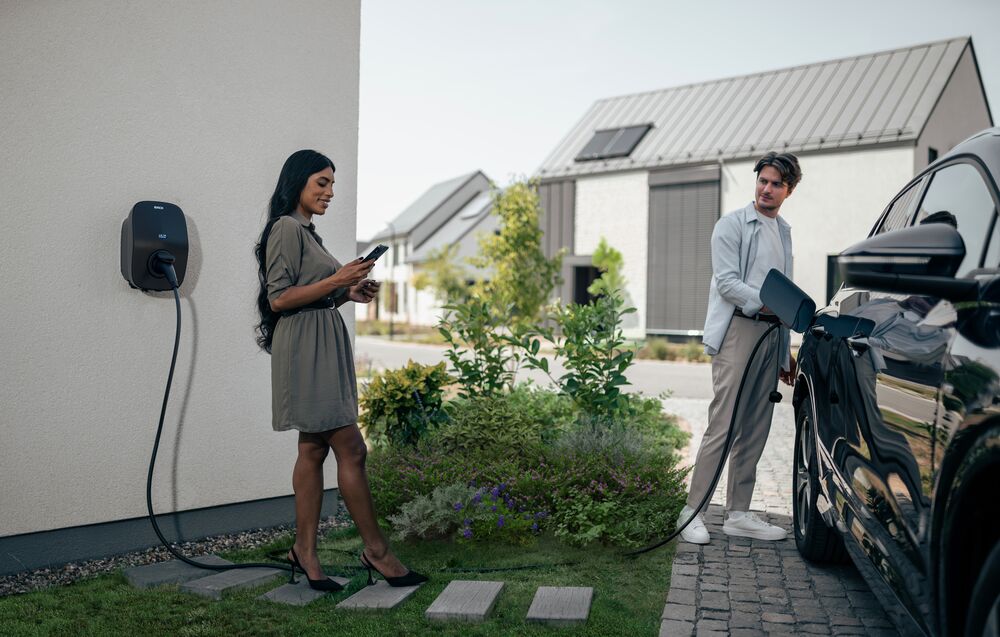
Last updated on 20 September, 2023
How long it takes exactly to charge an electric car depends on many things. However, to give you a somewhat accurate estimation, here's a quick overview of average charging time estimates.
How long does it take an electric car to charge?
- When using a fast charging station (level 3 charging). The average time it takes to charge a medium-sized electric car lies somewhere between 17 and 52 min.
- When using a home charging station (level 2 charging). The average time it takes to charge a medium-sized electric car lies somewhere between 1 hour 45 min and 6 hours.
- When charging your car without a charging station by using your regular outlet at home (level 1), the average time it takes to charge a medium-sized car will be about 19 hours.
Electric car charging: a new experience to many
Electric mobility is surging, with EV sales representing more than 50% of total UK vehicle sales in Q1 2023. Still, electric mobility remains a new and unfamiliar concept for many and comes with many doubts and uncertainties.
Besides price and range, one of the main questions potential EV drivers have relates to charging time. Our research with Ipsos found that 25 per cent of potential UK EV drivers are concerned about the time it takes to charge an electric car.
Let's take away some of these concerns by showing the average charging times in the overview below.
Charging times for electric cars
|
EV Charging level |
Power output charging session |
Small EV |
Medium EV |
Large EV |
|
Level 1 |
3 kW |
8h53m |
18h50m |
26h05m |
|
Level 2 |
7 kW |
3h48m |
5h51m |
8h06m |
|
Level 2 |
11 kW |
2h25m |
3h56m |
5h27m |
|
Level 2 |
22 kW |
1h08m |
1h45m |
2h27m |
|
Level 3 |
50 kW |
32 min |
52 min |
1h12m |
|
Level 3 |
100 kW |
16 min |
26 min |
36 min |
|
Level 3 |
150 kW |
- |
17 min |
24 min |
|
Level 3 |
240 kW |
- |
11 min |
15 min |
|
Level 3 |
300 kW |
- |
8 min |
11 min |
Approximate time to charge the battery from 20 per cent to 80 per cent state of charge (SoC). For illustrative purposes only: Does not reflect exact charging times, some vehicles will not be able to handle certain power inputs, and/or do not support fast charging.
How long does it take to charge my electric car?
If you want to know the charging time estimation for your electric car or any specific model you have in mind. Use our free electric car charging specifications tool.
But what influences EV charging times? The answer isn’t as straightforward as you may think. Several factors determine how long it takes to charge an electric car
Electric cars vs petrol cars
If you're reading this article, chances are electric mobility is pretty new to you.
So, before we dive in, it’s important to understand how "the refuelling mindset" of an EV differs from the driver of a petrol-powered vehicle. Typically, petrol vehicle drivers fill up their tanks whenever the fuel metre nears empty.
When it comes to EVs, instead of letting the battery drain empty before recharging, most EV drivers top up whenever they park.This is called opportunistic charging and means that all the valuable parking time spent at home overnight, at work, or at the supermarket can be used to keep the battery topped up and ready to go. Next to this, it's also a battery-health-related best practice not to drain your battery completely before recharging it.
So, yes charging an EV does take longer than filling up a tank with fuel. However, in most cases, you probably won’t notice because you’re off doing more important things.
What impacts electric car charging time?
1. Battery size
Just like the size of a fuel tank of a petrol car, the size of a vehicle’s battery determines how much energy a vehicle can hold. Measured in kilowatt hours (kWh) which are the electric equivalent of a litre, the bigger the battery, the longer it will take to charge.
As some larger vehicles –like say the Porsche Taycan or the Tesla Model S take more power than others. With battery capacities of 90 kWh and 100 kWh respectively, they will take longer to charge at the same power output than a smaller vehicle. Of course, once they're full, they can take you a lot further than a vehicle with a smaller battery.
2. State of charge (empty vs. full)
Similar to the fuel metre on a car, state of charge (SoC) refers to how much energy your EV can use between ‘full’ and ‘empty.’ Simply put, it’s the percentage charge your EV battery holds relative to its capacity at a given time.
Because of the way battery chemistry works, a battery with a low SoC will be able to accept a much higher power output than one with high SoC. As the graph below illustrates, charging will progressively slow as an EV’s battery gets closer to full.
This is why charging an EV up from 20 to 80 per cent is much faster than from 80 to 100 per cent.
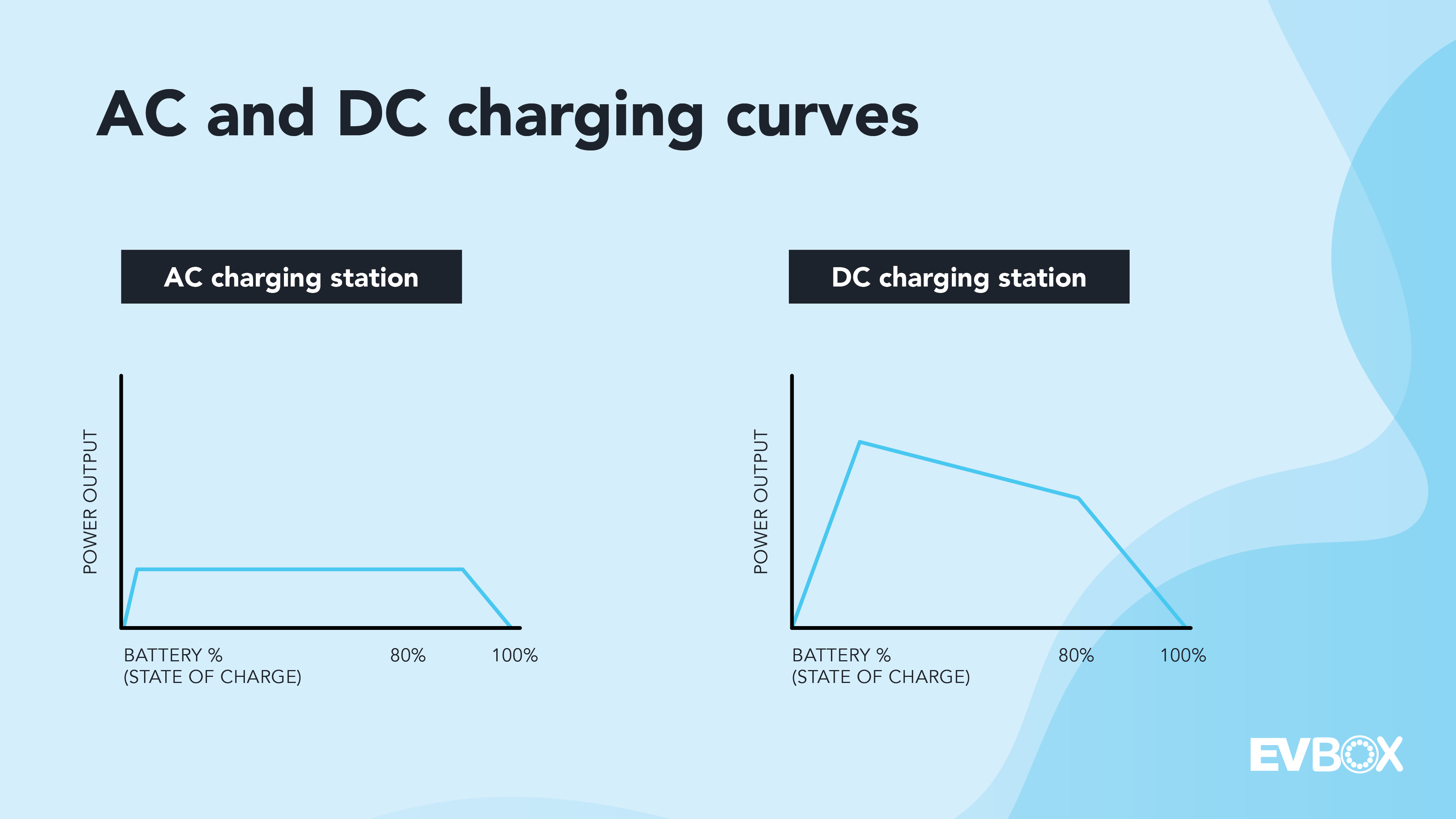
3. Charging capacity of the vehicle
While larger batteries mean they can store more power, they don’t always mean faster charging times as some vehicles can take a higher input of power than others. For example, the Tesla Model 3, has a fast charging capacity of 250 kW, while the smaller Peugeot e-208 only supports 50 kW fast charging—a big difference in charging times. So:
- Charging a Peugeot e-208 at a 240 kW charging station effectively means that it can charge at a maximum of 50 kW as that's all it can take.
-
Charging a Tesla Model 3, at that same 240 KW charging station means it will charge at a maximum of 240 kW (even though the car can take 250 kW) as that's the maximum power output of the charging station.
As a result, a small battery doesn’t necessarily mean that a vehicle will charge faster. While the Tesla’s battery mentioned above may be far bigger than the Peugeot’s at the end of the day, it will take less time to charge when using fast charging.
4. Weather conditions
Environmental conditions, and especially temperature, play a vital role in how fast you can charge an EV. Batteries operate most efficiently when temperatures are between 20–25°C. If temperatures get too low or too high, it may take slightly longer to charge, particularly if using a fast charging station. This is because a vehicle’s battery management system (BMS) reduces power to protect the battery when faced with higher or lower temperatures.
5. Power output
There are different levels of charging, and generally speaking, the higher the level, the faster it can charge your vehicle. Let’s take a look at each to see how they compare.
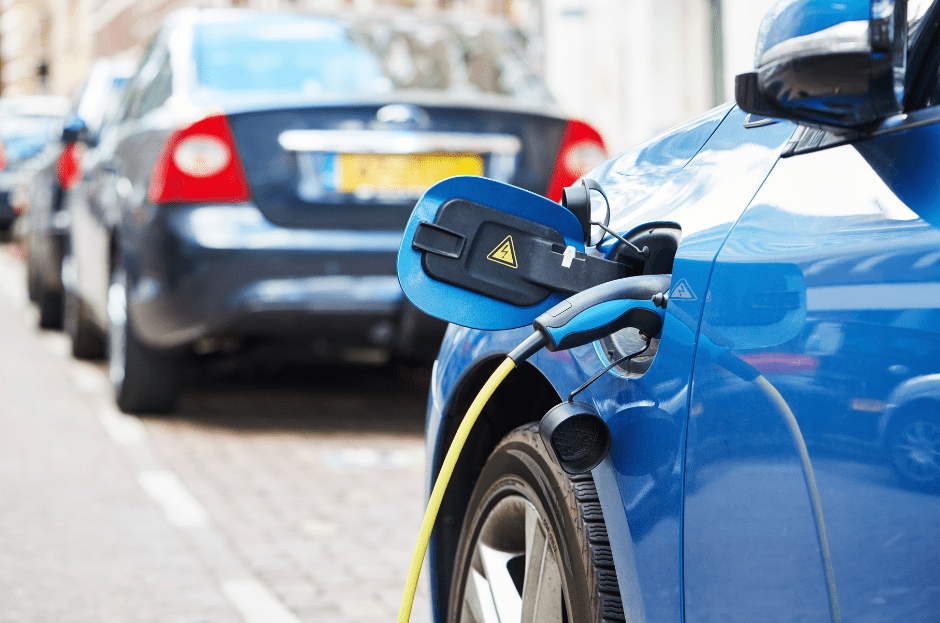
Electric car charging times for all EV charging levels
Level 1 charger
What is a Level 1 EV charger?
Level 1 charging refers to plugging the cable that came with your EV into a standard household socket.
EV Level 1 charging time
Charging via a domestic socket is the slowest way to charge an EV. Standard household outlets deliver up to 3 kW (13 A). This equates to around 10 miles of range per hour. So, for example, it would take 22 hours and 40 minutes to fully charge a 50 kW Peugeot e-208 on a Level 1 charger. This method is not only slow but can even be dangerous, as it offers no protection against power overloads. Learn why we don’t recommend this charging method.
Level 2 charger
What is a Level 2 EV charger?
Level 2 charging refers to charging your EV via a dedicated charging station that is specifically wired into your home or building’s power supply. Given their price point and charging speed, Level 2 chargers are commonly found in residential and commercial locations.

EV Level 2 charging time
In the UK, Level 2 charging stations typically deliver 7kW which is common for a UK home. While it is technically possible to charge three times faster with 22kW, but many cars still don't support above 11 kW AC charging, and you'll need a three-phase connection, which many UK homes don't have from the get-go. Nevertheless, it may be possible to upgrade your home's electrical system to accommodate a three-phase connection, but this may come at a significant cost.
Overall, a 7kW connection as it is, is typically sufficient for most EV owners. However, if you have multiple electric vehicles in your household or want much faster charging, it may be worthwhile considering an upgrade to a three-phase connection.
Level 3 charger
What is a Level 3 EV charging station?
Also known as DC fast charging, Level 3 charging uses direct current (DC) to charge a vehicle. In short: Level 3 chargers deliver more power, faster, making them ideal for short-stop locations like petrol stations and depot facilities. As it’s available at a much higher voltage, it goes without saying that DC chargers are far more powerful than Level 1 and 2 charging.
EV Level 3 charging time
As its name suggests, DC fast charging is the fastest way to power an EV, recharging most vehicles in just minutes instead of hours. Level 3 chargers come in many different shapes, sizes, and charging capacities. That, in combination with the many vehicles and battery types out there, means charging speeds and times can vary greatly.
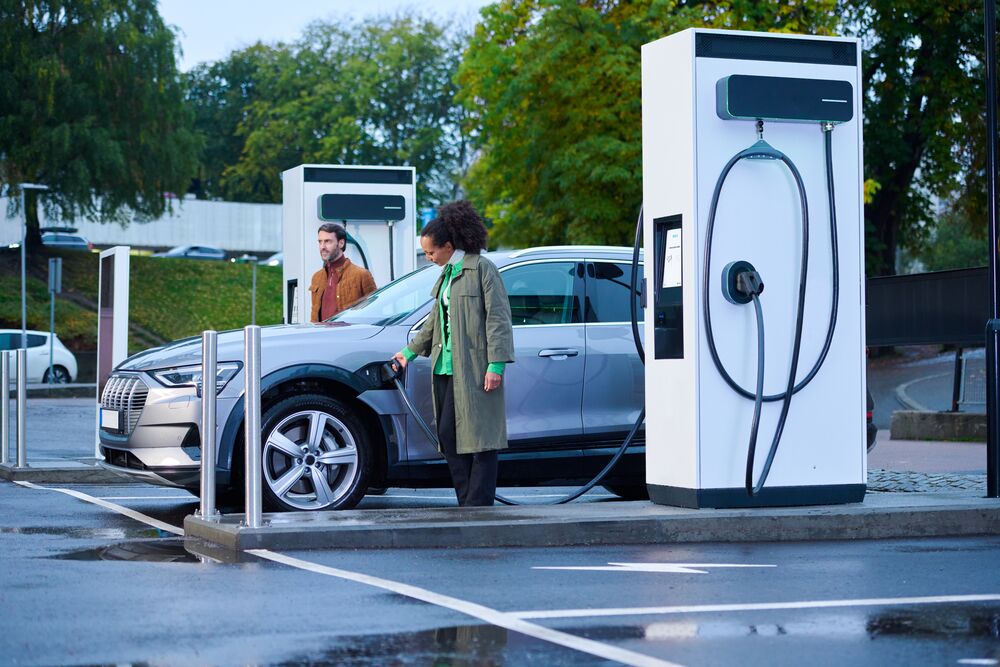
The future of EV charging
As EV technology continues to advance, it won’t be long before charging electric cars gets even faster. New battery technology and improved fast charging standards are constantly increasing the speeds at which EVs charge, with EVBox's has a new DC charging station that can already deliver up to 400 kW charging, which can add up to 100 km of range in just three minutes.  Looking ahead, many scientists and engineers are already working on speeding up charging time even further. A team of Harvard researchers recently designed a lithium-ion battery prototype that, under laboratory conditions, can recharge over 50 per cent of its capacity in just three minutes—and do so thousands of times without significantly degrading. This, the researchers say, could pave a path toward batteries that can recharge fully even faster.
Looking ahead, many scientists and engineers are already working on speeding up charging time even further. A team of Harvard researchers recently designed a lithium-ion battery prototype that, under laboratory conditions, can recharge over 50 per cent of its capacity in just three minutes—and do so thousands of times without significantly degrading. This, the researchers say, could pave a path toward batteries that can recharge fully even faster.
Learn more about EV charging
While there’s no simple answer to how long it takes to charge an electric car, understanding the different variables such as the car, the battery, the charging station, and weather conditions, we hope this overview gives you a good idea of how long it takes to charge an EV.
If you’re looking to learn more about EV charging, or are thinking of buying an electric car for the first time, have a look at our comprehensive EV charging guide for an overview of everything you need to know.
Related articles
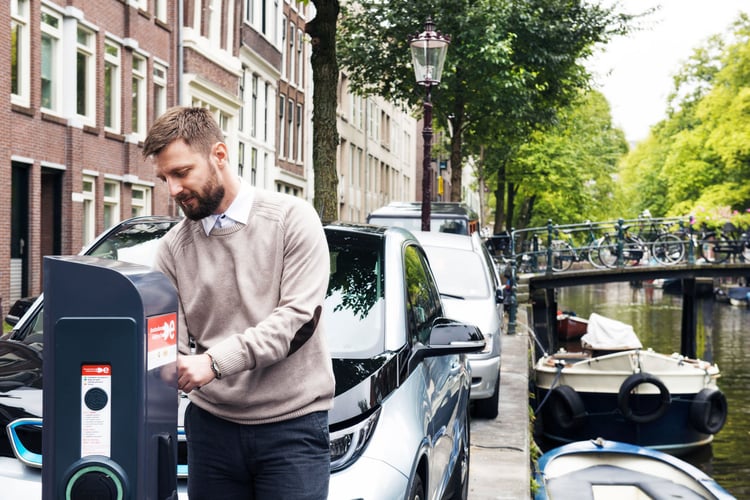
7 FAQs about electric car charging
Only a few years ago, electric mobility seemed like a futuristic idea or a hypothetical concept. Nowadays, electric...
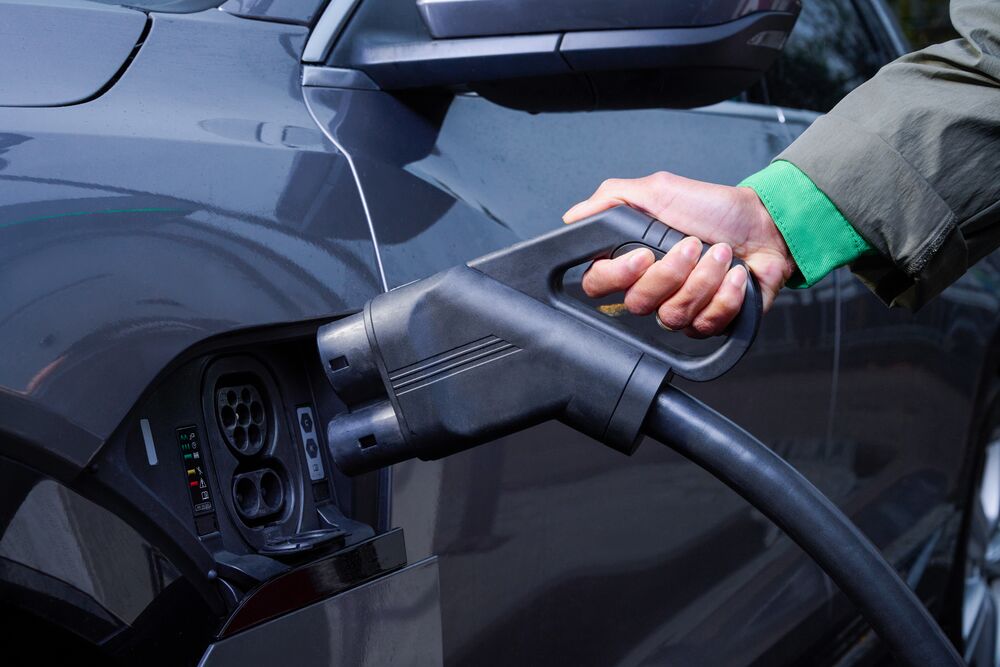
Electric car charging cables and plugs explained [2023 update]
Last updated on December 8th, 2023 Charging an electric vehicle (EV) is not a one-size-fits-all endeavor. Depending on...
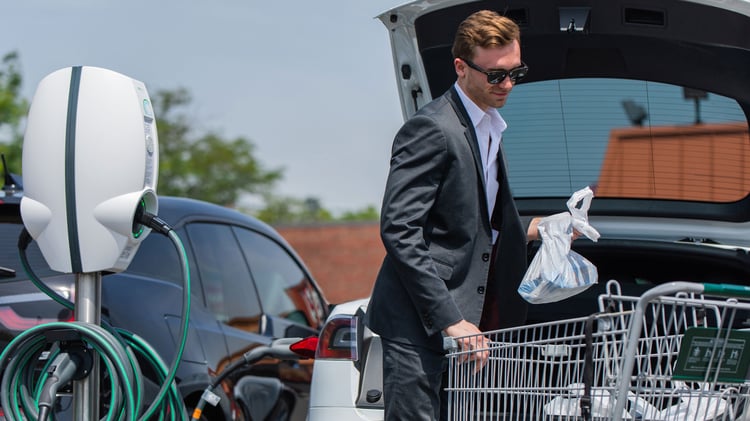
Where to charge an electric car?
Today, nearly half of all prospective new car buyers are thinking of going electric. Lower prices, wider model variety,...
